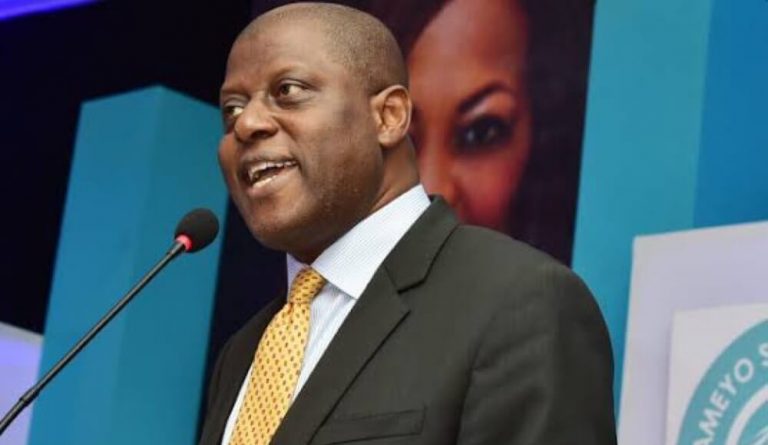
Yemi Cardoso, the Governor of the Central Bank of Nigeria (CBN), has sought to allay concerns surrounding the country’s declining external reserves, which have been linked to recent naira gains in the forex market.
Nigeria’s foreign exchange reserves have witnessed a significant downturn, plummeting by approximately $2.16 billion in 29 days. Current figures from the CBN reveal that the FX reserves stand at $32.29 billion as of April 15, 2024, marking the lowest level since September 25, 2017.
The depletion of FX reserves raises concerns about the country’s balance of payments and its ability to meet international obligations. Furthermore, it may impact investor confidence and potentially lead to a credit rating downgrade, exacerbating the nation’s borrowing costs.
Tekedia Mini-MBA edition 16 (Feb 10 – May 3, 2025) opens registrations; register today for early bird discounts.
Tekedia AI in Business Masterclass opens registrations here.
Join Tekedia Capital Syndicate and invest in Africa’s finest startups here.
Contrary to speculations, Cardoso said that the decrease in reserves was not a result of the apex bank’s efforts to defend the naira. Rather, he attributed the decline primarily to debt repayments and other standard financial obligations.
“Let me clarify that the decreasing foreign exchange reserves are not due to our efforts to defend the naira,” Cardoso stated emphatically. “The shifts in our reserves are largely influenced by routine debt repayments and other financial commitments.”
Cardoso explained that there were no intentions to defend the currency using the external reserves, especially given the implementation of a willing buyer, willing seller policy by the central bank. He said “the shift you see in our reserves” has little or nothing to do with defending the naira, and that is “certainly not our objective.”
Cardoso explained that Nigeria’s significant reduction in external reserves can be attributed to the country’s obligations to fulfill its debt repayments. This financial activity, he noted, is a routine practice essential for maintaining national credibility in the global financial arena.
“What you see with respect to the shifts in our reserves is the shift you will find in any country’s reserve situation where, for example, debts are due and certain payments need to be made,” Cardoso explained. “These payments are made as part of keeping our credibility intact.”
Nigeria faces substantial external debt service requirements, including payments on Eurobonds and other international financial obligations. The repayments of these debts necessitate substantial amounts of foreign currency, further depleting the reserves.
Between January and October 2023, Nigeria allocated approximately 50% of its dollar payments to service external debts, indicating the increasing strain of foreign debt on the nation’s economy. Furthermore, Nigeria’s expenditure on external debt servicing surged to $560 million in January 2024, representing a staggering 339% increase compared to the previous year’s $112 million.
Reiterating the central bank’s commitment to a market-driven approach, Cardoso highlighted the CBN’s commitment to currency prices to be determined by willing buyers and sellers, without direct intervention from the bank.
“Our overall policy and philosophy advocate for a market-driven approach,” Cardoso stated. “We encourage willing-buyer willing-seller price discovery. Ultimately, I perceive a future where the central bank will really not need to intervene except in very unusual circumstances.”
He also addressed the interventions in the Bureau De Change (BDC) segment, saying they are minimal and targeted to ensure effective integration into the broader market.
“I can understand that especially at the outset, there have been little cases where the bureau de change (BDC) needed to be supported,” Cardoso acknowledged. “But in terms of intervention, that is really not our intention at all.”
So far, the CBN has conducted three dollar sales to BDCs, with the most recent sale totaling $10,000 to each BDC at a rate of N1,101/$1.
Additionally, Cardoso disclosed a recent influx of approximately $600 million into the reserve account over the past two days, noting that these movements were routine and not aimed at defending the naira.
“What is important to us is that there is sufficient liquidity in the market,” Cardoso stressed. “As long as we have a vibrant currency market, why do we need to intervene? We don’t need to.”
Nigeria is grappling with intense economic challenges characterized by high inflation and poorly performing currency, which have significantly contributed to the soaring cost of living. Although the President Bola Tinubu administration has rolled a flurry of policies targeted at economic growth, the bounce back is not expected to take effect soon. The International Monetary Fund (IMF) projects recovery by 2028.



